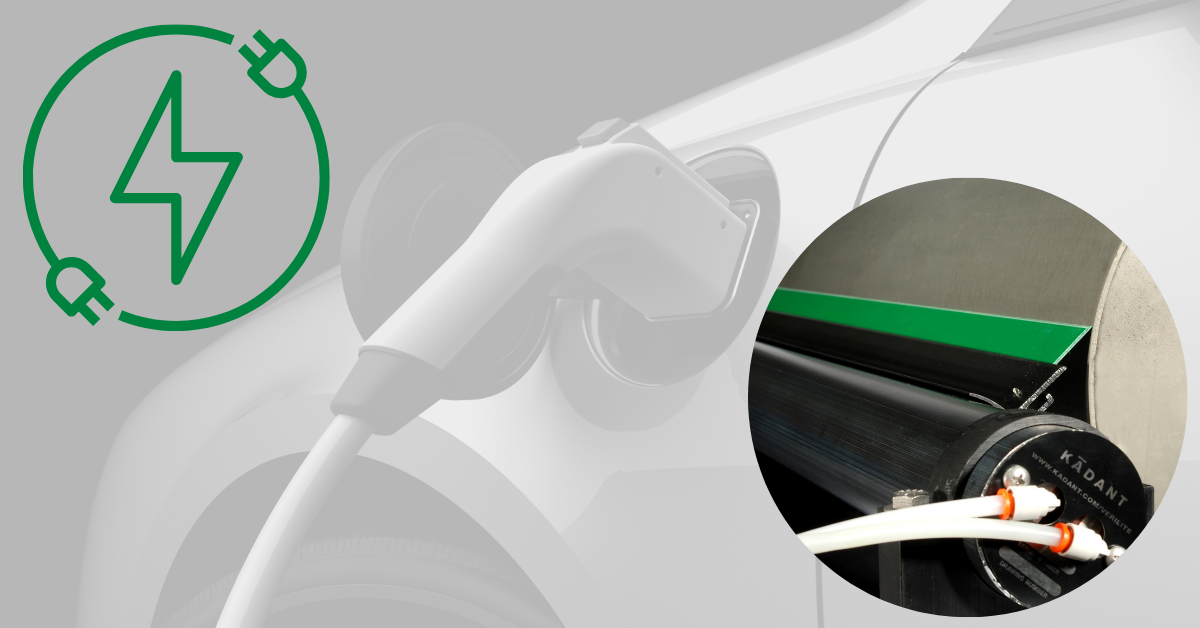Kadant Supplies Roll Cleaning Systems to Electric Car Manufacturers for Battery Production
 Battery manufacturing is considered a key industry for energy transition and electromobility. According to industry experts, the market for lithium-ion batteries will grow approximately 11 percent annually through 2027.
Battery manufacturing is considered a key industry for energy transition and electromobility. According to industry experts, the market for lithium-ion batteries will grow approximately 11 percent annually through 2027.
Lithium-ion battery cell manufacturing involves three main process steps: electrode fabrication, cell assembly, and formation and aging. Within this process, a carrier foil is coated with a mixture applied to either the anode or the cathode using an application tool. The carrier foil is coated either continuously or intermittently. The film thicknesses (anode - copper foil and cathode - aluminum foil) vary between 10 μm and 25 μm depending on the cell design. The carrier foils are coated over a width of up to 1,500 mm in a roll-to-roll process.
In the cell assembly, the anode and cathode are now connected to each other either via a stacking process or winding. For the battery to function at all and to prevent cell closure, a so-called battery separator film must be placed between the anode and cathode.
In the production process, oils escaping from the film during the stretching process must be removed. In addition, dirt particles must also be removed, which otherwise have consequences for the entire battery. This is where Kadant comes into the process. An intact battery film is crucial for a functioning battery. Continuous roll cleaning is an important step in ensuring this and helps to increase process reliability and minimize the reject rate.
The Kadant VeriLite™ roll cleaning assembly provides a clean pickup available over the entire width of the rolls. This is achieved by floating thin doctor blades, with a compressed air hose transmitting force across the entire width of the roll. As a result, the doctor blade conforms to the entire surface. Uneven blade wear due to varying moisture content is thus compensated for.
